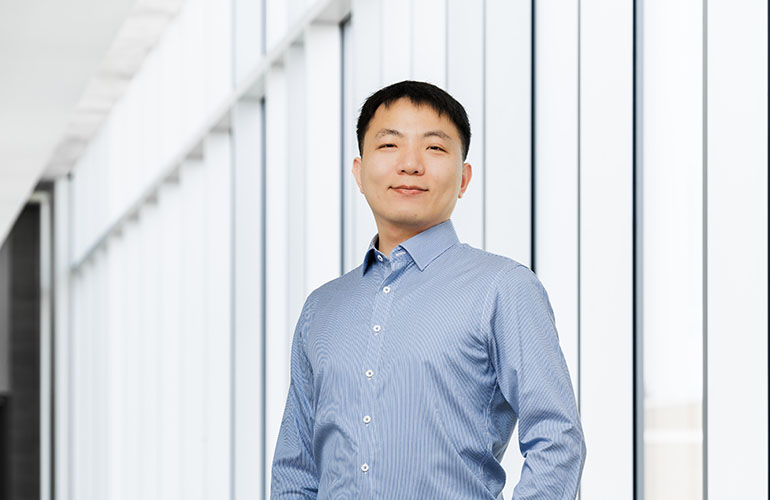Chang Liu received his B.S. from the Harbin Institute of Technology, China, and his M.S. from Zhejiang University, China, in 2016 and 2021, respectively, both in electrical engineering. From 2016 to 2017, he was a test engineer at Huawei Technologies in Shenzhen, China. In 2018, he worked as a research assistant at Zhejiang University, China. Since September 2021, he has been with the McMaster Automotive Resource Centre (MARC), at McMaster University, Canada, as a Ph.D. student in electrical engineering, under the supervision of Dr. Ali Emadi. His research interests include modulation and control of converters, power converter design, and security of converters.
Full Profile
Chang was born in Zhengzhou, China, and he showed an interest in engineering at an early age. As a result, he didn’t think twice about studying engineering when he enrolled at the Harbin Institute of Technology (HIT) in 2012. In his sophomore year, he led a student group and designed a rotating clock with a DC motor, microprocessor, and LEDs, in the Electronic Design Competition hosted by the College of Electrical Engineering, HIT. In 2016, his last year of university, Chang designed an angle measuring system based on an absolute inductosyn for his bachelor thesis, under the supervision of Prof. Chengjun Liu. He proposed a new type of winding structure in his thesis, which was later applied in a company-sponsored project.
After graduating from HIT, Chang joined Huawei Technology in Shenzhen, China. He worked as a test engineer, for new product introduction (NPI). Shortly after joining, he became a team leader and was responsible for introducing a new product into manufacturing. Getting in touch with world-leading technologies, encouraged him to pursue innovation and self-improvement even further.
In 2018, Chang joined Prof. Yan Deng’s research group at Zhejiang University, China, as a research assistant. Following this, he became a master’s student majoring in power electronics. During his master’s, he participated in several research projects, including one under the Key R&D Program of China and another with the State Grid Corporation of China (SGCC). His thesis focused on the modulation and control technique for an inverter with a dual-DC-port. He proposed a modified space vector modulation that maps the power flow of the two DC ports, into the phase and length of a virtual vector. He also built a 3-kW prototype and completed the experimental verification. During his master’s studies, Chang authored and co-authored five papers. He also holds two patents. In 2021, he received his M.S. with the Outstanding Graduate Student Award.
Currently, he is pursuing his Ph.D. at McMaster University, Canada, under the supervision of Dr. Ali Emadi. Apart from the design and control of inverters, he also expends his research interest to the security of power converters. Besides his studies and research, Chang enjoys basketball, table tennis, and flying in flight simulations.











